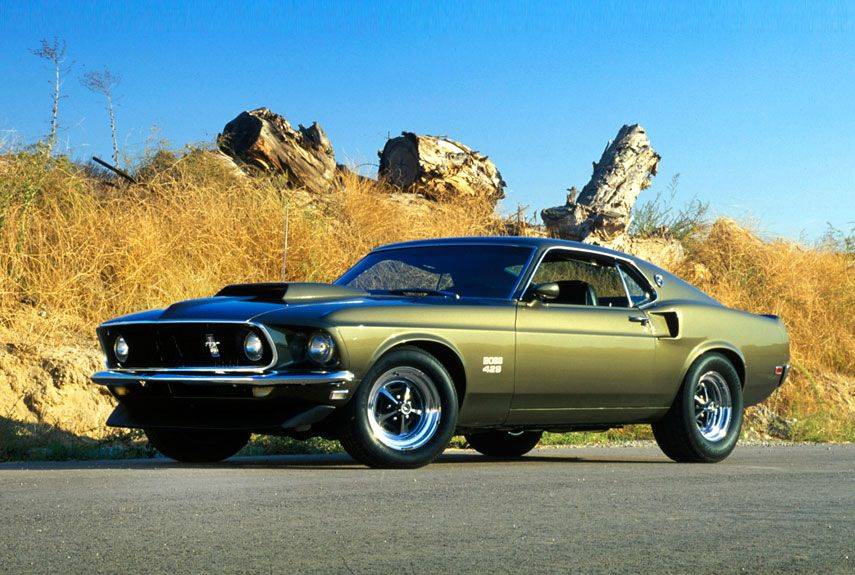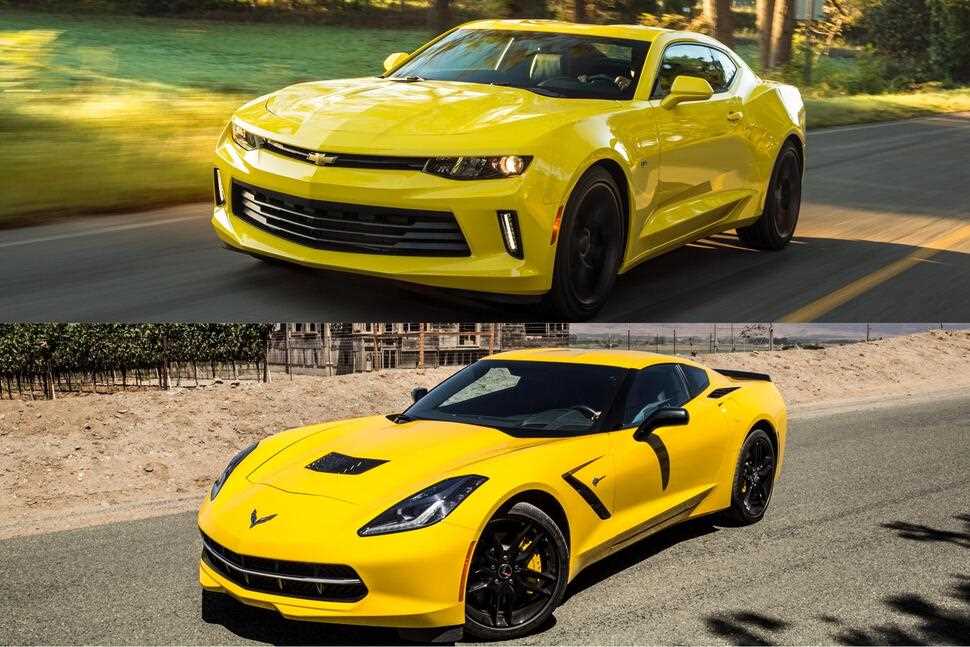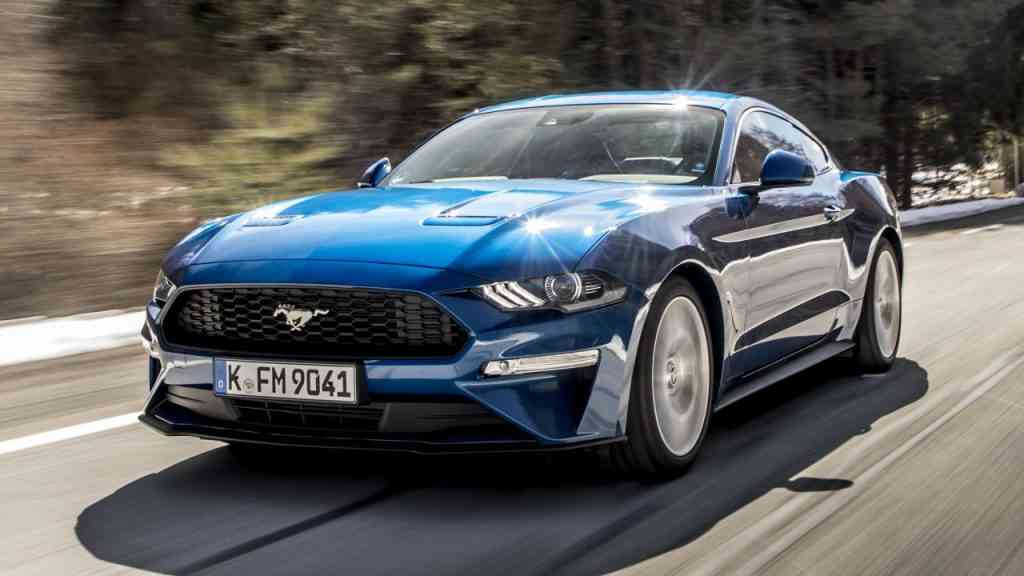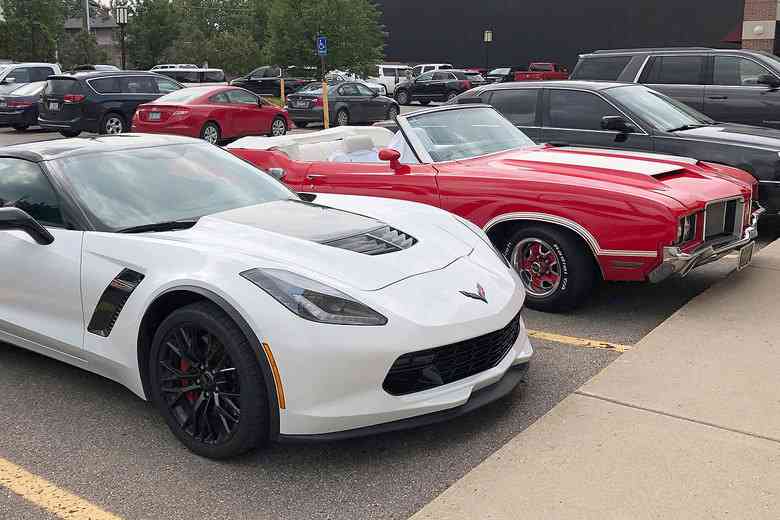The terms ‘muscle car’ and ‘sports car’ are often interchangeably used in pop culture. If you are interested in digging out a bit of history and the glaring distinctions between these two types, read this comparison between muscle car vs sports car.
If you ask for performance vehicles that can navigate at high speeds, modern people will recommend sports cars.
But muscle cars were the substitutes for performance vehicles in the late 1960s and early 1970s.
The craze for vehicles like Dodge Charger, Chevrolet Chevelle, and Ford Mustang in that era gave birth to scads of fans across the United States.
Contents
What Is A Muscle Car?
A muscle car is a high-performance and larger version of a four-door sedan. They have a manual transmission and some of the most powerful engines available in the inventory of their manufacturers.
Most people have confusing ideas about the definition of a muscle car. But once you get behind the wheel, you will know how it differs from other vehicles, including sports cars.
Pontiac GTO is the widely known example of this type among most of the motorheads. But almost every large sedan used to have a muscle car version back in the time when these vehicles were highly popular.
Apart from the usual models like Dodge Coronet and Buick Riviera, some mid-size vehicles with small engines such as the Dodge Dart also got in on the action.

What Is A Sports Car?
Car enthusiasts often disagree with the features that constitute a sports car. But there are still some characteristics that define this category.
Sports cars are smaller and lighter than muscle cars. They have a small cabin space but the handling is better compared to their bigger counterparts.
There are a few other criteria to compare muscle car vs sports car:
Muscle Car Vs Sports Car: The Differences
Once you know the difference between sports car and muscle car, you will understand why these terms should not be interchanged.
1. Body Design
You can easily recognize a muscle car because they have a big body to accommodate the monster engine unit.
The exterior shell has bold curves that are so deep that it looks like the car is about to bulge out of the seams.
Besides, these vehicles have an extremely traditional look, a sheer contrast to the modern, compact design of the cars these days.
Sports cars don’t have such a hunky appearance. They rather have sleek lines, compact body, and a highly modern look.
SEE MORE:
2. Power & Performance
A true muscle car will definitely have a power-packed engine. They are likely to have a powerful V8 unit or something better. The smaller engines of sports cars cannot match these bulky power machines.
The engines still pack some punch and these vehicles are supposed to be quick on the road. However, sports vehicles can be all over the place considering the performance.
Most people think that sports vehicles will be fast like a Corvette or a Nissan 370Z. But cars like four-cylinder Porsches and Mazda Miata are also in the sports category without being too fast.

The main difference in this regard between muscle car vs sports car is that the former must have power while the latter mostly focuses on handling and style.
This is quite evident from the torque production of their engines. Bigger muscle car engines produce much higher torque than the smaller sports car engines.
Coupled with having more torque than horsepower in the rear wheels, muscle cars are a force to be reckoned with when it comes to straight-line racing.
Sports cars draw their speed from their quick engines because they don’t have the luxury of having a high amount of torque.
3. Handling
Sports cars are a clear winner in this sector. Muscle cars are mostly for straight highways with few turns. There are a few models with better handling but they never excel the superior handling of sports cars.
These lightweight vehicles are specially designed to show great performance around the corners. Their airy quality makes the turning easier while still keeping the wheels grounded to the surface.

4. Manufacturing Companies
Muscle cars are an American invention because their landscape and highways are more suitable for this type of vehicle.
It is quite rare for an automaker from another country to manufacture such a vehicle unless they have planned to sell it in the American market. On the other hand, manufacturers from all around the world produce sports cars.
FAQs on Muscle Car vs Sports Car
-
Are muscle cars more powerful than sports cars?
In terms of raw horsepower, muscle cars often have more powerful engines than sports cars. However, sports cars may have superior power-to-weight ratios, making them quicker in corners.
-
Which type of car is better for drag racing?
Muscle cars are typically better suited for drag racing due to their powerful engines and strong acceleration.
-
Can sports cars be used for daily driving?
Yes, many sports cars are suitable for daily driving, but they may not offer as much practicality and comfort as some other vehicle types.
-
Are muscle cars fuel-efficient?
Muscle cars tend to have larger, less fuel-efficient engines compared to sports cars, so they often consume more fuel.
-
Do sports cars have better handling than muscle cars?
Sports cars are designed for superior handling and maneuverability, making them better suited for twisty roads and track driving.
Comparing muscle car vs sports car, it is clear that the first type is better for long road journeys, while the second type is a better option for city driving.



